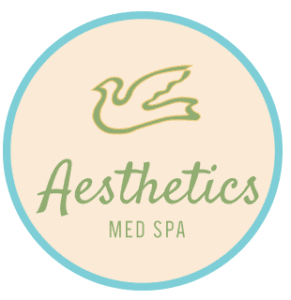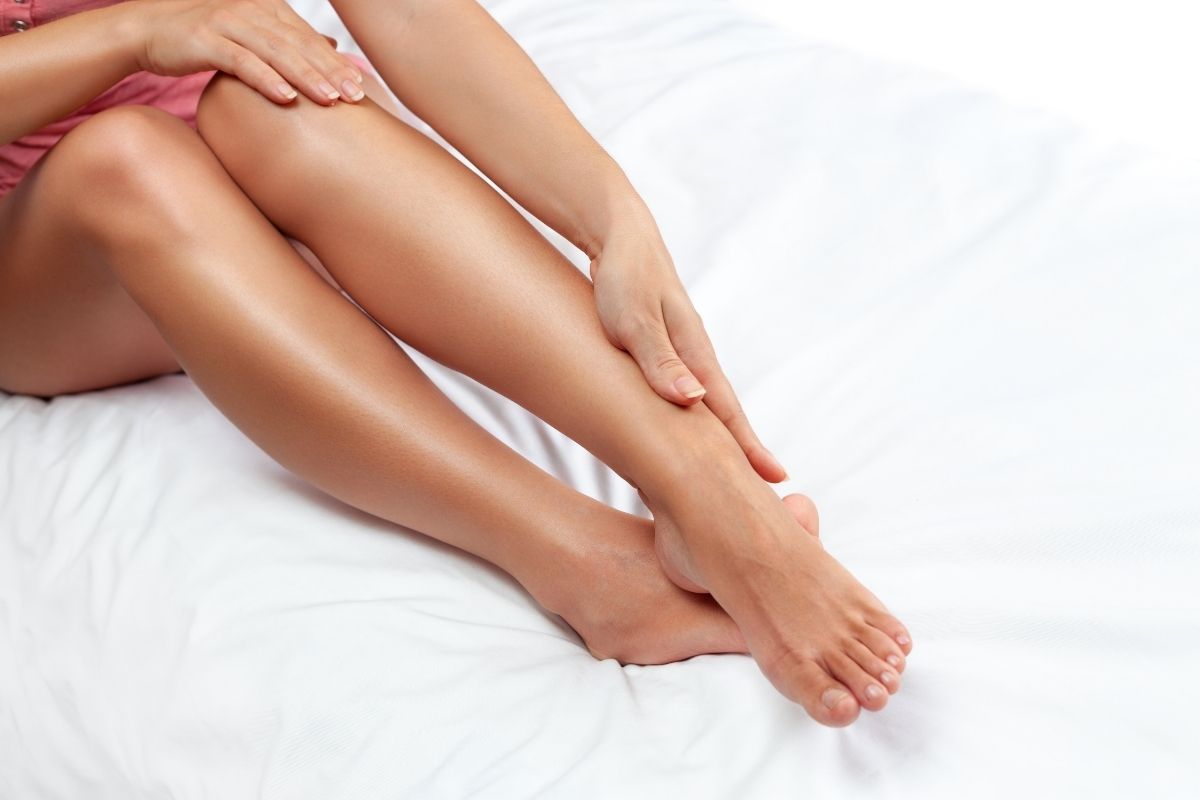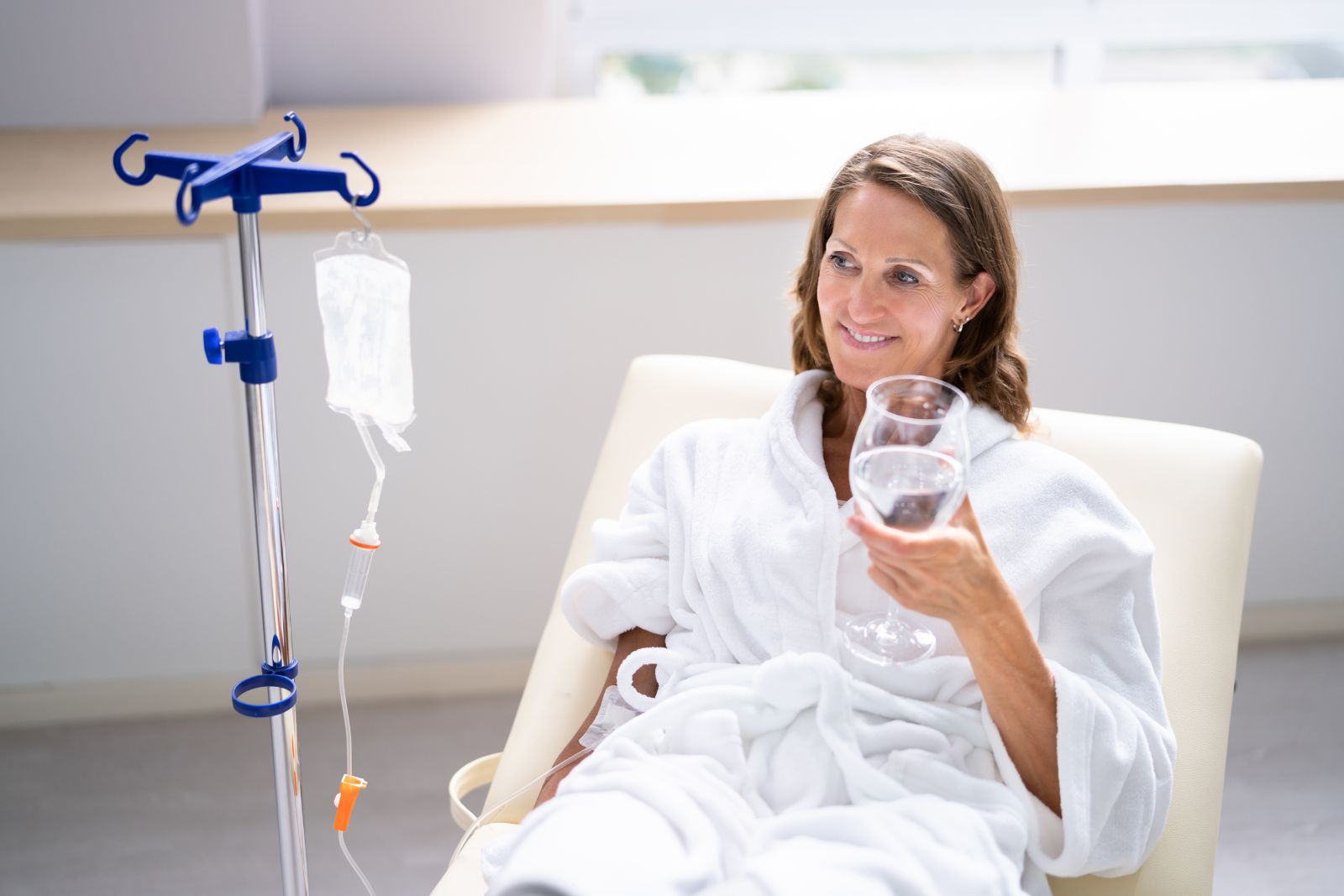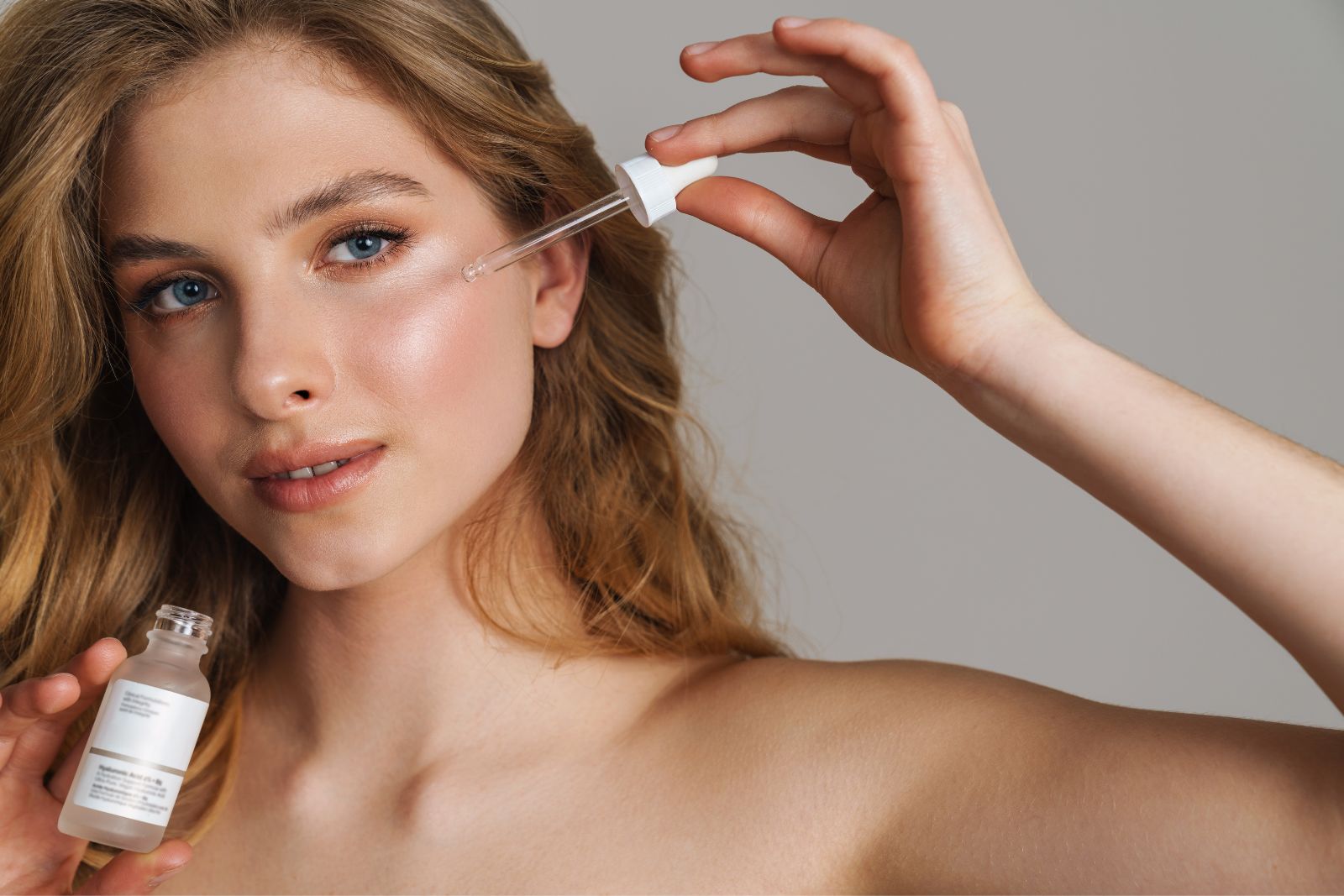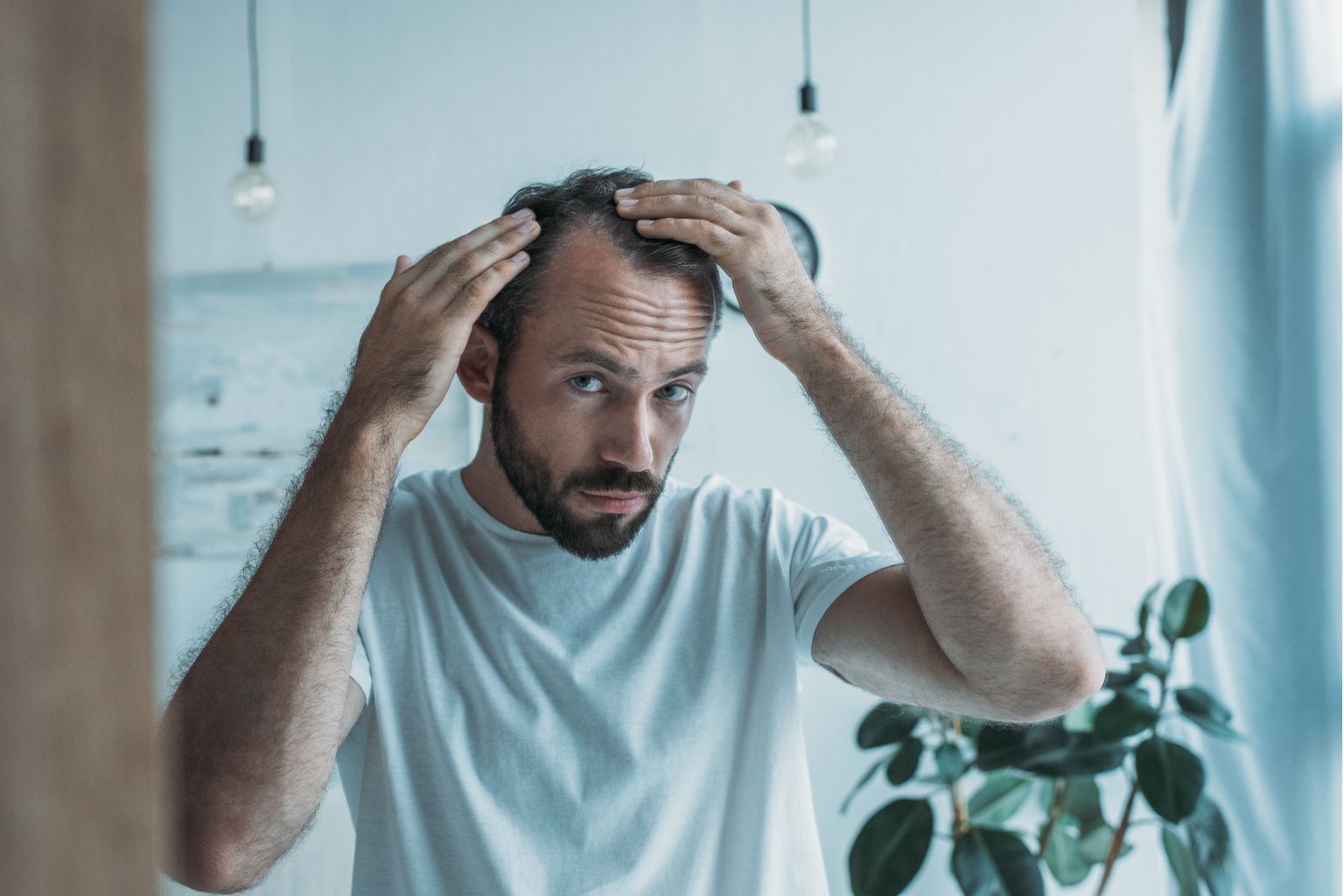Varicose veins are more than just a cosmetic issue. They may cause pain or discomfort and may even lead to more severe complications, such as blood clots, bleeding, leg ulcers, and deep vein thrombosis, or be an indication of an underlying vein issue. Large, swollen, and unsightly, varicose veins usually appear on a person’s legs. While most varicose veins don’t cause any discomfort, many people want to get rid of them for cosmetic reasons. Unfortunately, there is no miracle drug that can help you heal your varicose veins. However, several minimally invasive procedures target varicose veins and provide excellent results for most patients.
Aesthetics MedSpa Reno’s customers fly in from around the country and even internationally to receive their laser treatment for varicose veins. Our extensive experience and award-winning service are the reason we’ve been voted Reno’s top medspa for 8 years running.
What exactly are varicose veins?
Varicose veins are knotty, discolored, and twisting veins people often notice on their legs. They are usually caused by blood pooling in the legs. They appear when the valves in your veins weaken and allow the blood to collect in one place. Once the blood gets collected in a vein, it becomes enlarged and swollen and turns blue or dark purple.
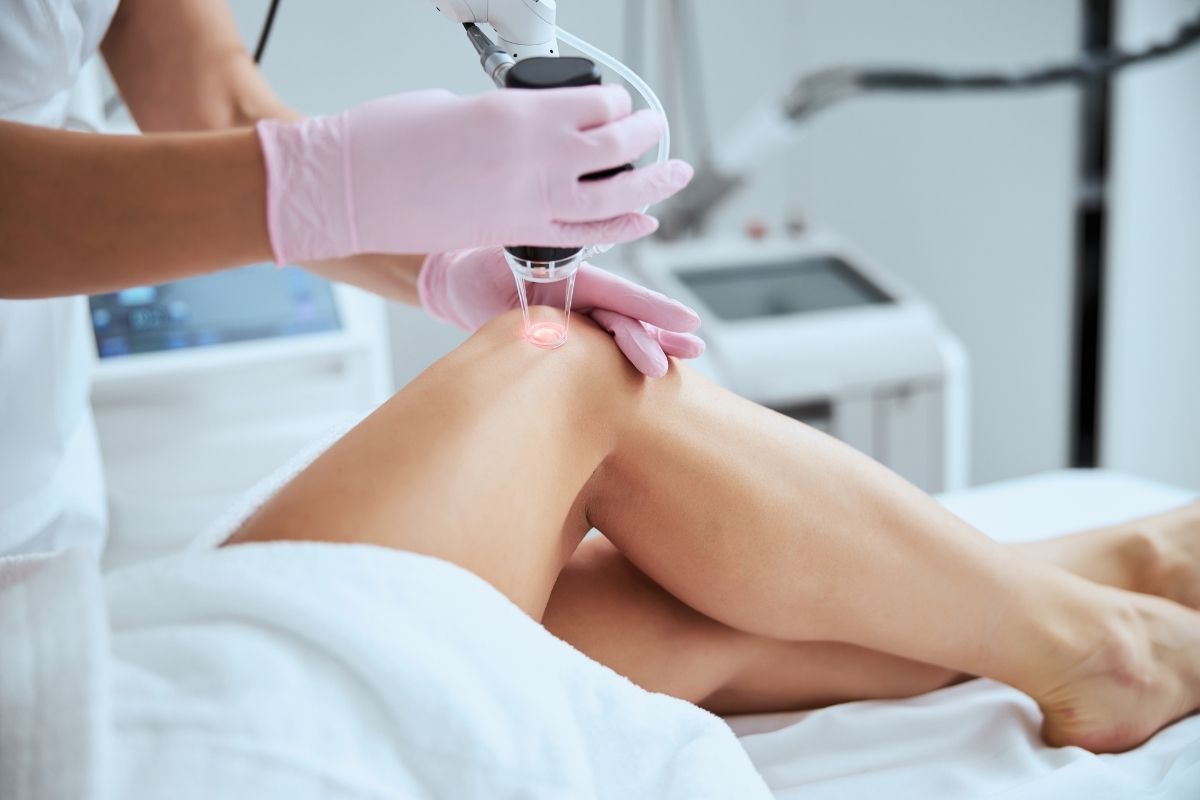
Most of the time, varicose veins are not dangerous, but they can cause serious discomfort or pain. Among the most common risk factors for varicose veins, you’ll find sex (women are more likely to suffer from varicose veins than men), age (veins lose their elasticity as you get older), and genetics. According to the US National Library of Medicine, studies have also shown that varicose veins are more likely to appear if the person is overweight or is spending a lot of time standing.
What is laser vein treatment?
One of the most common procedures that prove to be very efficient against varicose veins is laser vein treatment. The science behind the procedure is quite simple. Dermatologists direct the laser light at the vein. The heat from the laser damages the vein walls and seals the vein. Thus, the vein gets closed and loses its source of blood. Scar tissue then forms, and the body naturally absorbs the dead tissue. In time, and with no source of blood, the vein fades away and eventually disappears for good.
The procedure is usually performed under local anesthetic and, in some cases, mild sedation. Laser treatment allows the patient to spend less time or no time in the hospital or at the clinic where they get treated. Moreover, the treatment significantly reduces the chances of bruising following the procedure, and the patient can return to their normal activities the next day.
Laser vein treatment is among the first treatments we began administering at Aesthetics MedSpa Reno. Our team has comprehensive experience with an array of medical procedures. Our reviews and our awards speak to the level of attention and service that each patient receives.
What to expect during the procedure?
The simplicity of the procedure is part of what makes it so appealing. The whole process happens on the surface of the skin. The patient will be provided with eye protection against the laser and the area will be cleaned and prepared for the laser. The heat energy from the laser may create some discomfort as it’s applied along the target veins. Beneath the skin, the enlarged vein will be damaged so that scar tissue can grow and seal it off. While it may sound painful, patients who have had laser vein treatment report that the procedure is painless.
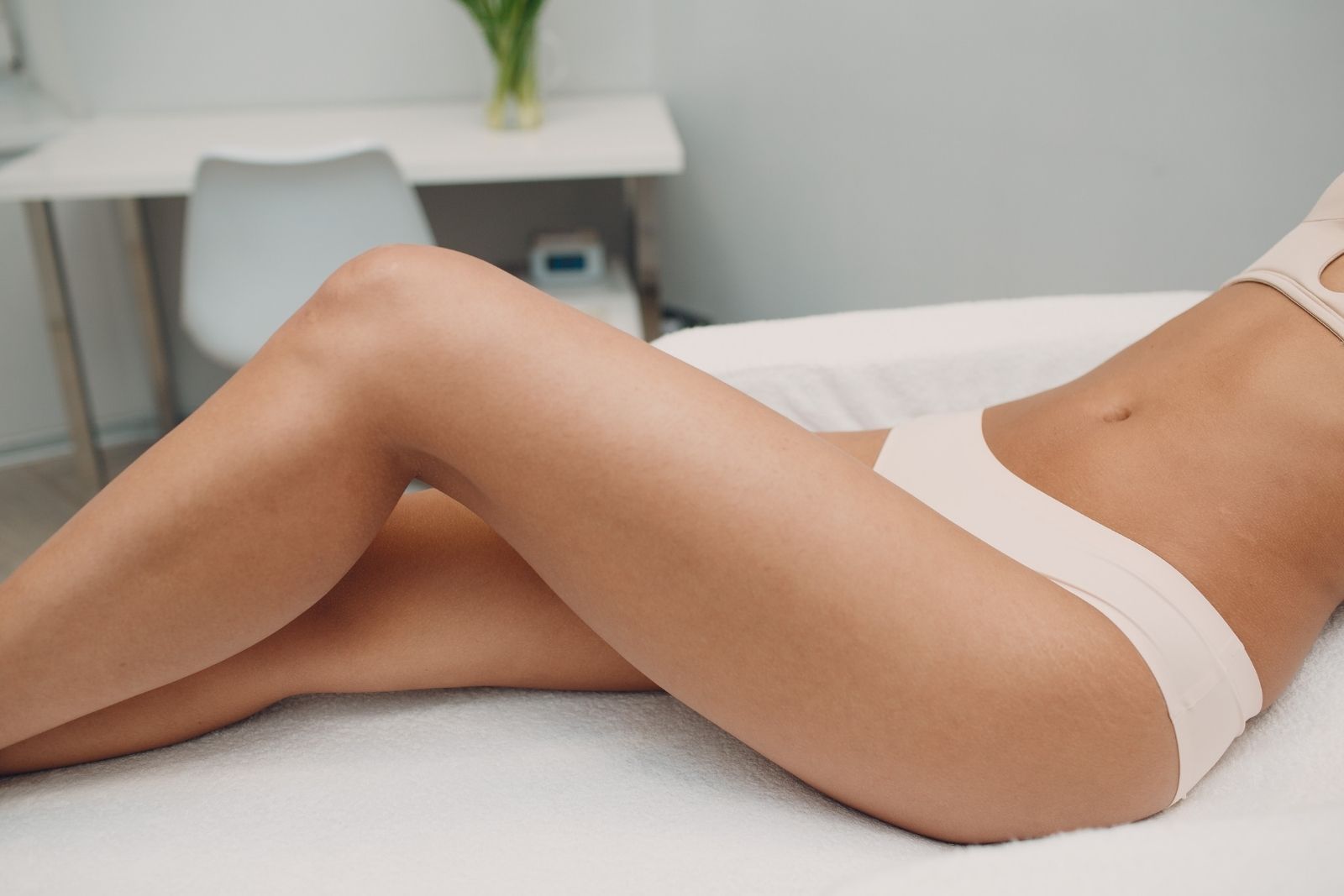
This Simple laser vein treatment is performed outside the skin and so is best suited to treat the varicose veins located just under the skin’s surface. For more in-depth procedures and people with poor blood circulation, doctors usually recommend other procedures, such as sclerotherapy. Sclerotherapy should not be confused with laser therapy. Sclerotherapy is based on a saline solution that gets injected into the vein to scar it. This way, the blood is directed to nearby healthy veins, and the affected vein walls have no other choice but to collapse and fade away.
After the laser procedure ends, you can return to your regular daily activities right away. The procedure takes between 15 and 30 minutes for one leg. In most cases, the patient needs more than just one treatment session. The following sessions are usually scheduled at intervals of 6 to 12 weeks.
Are there any side effects of laser vein treatment?
Laser treatment is considered to be safe for most patients. However, it is recommended to always discuss this option with your doctor and see what type of varicose vein treatment is best suited according to your needs and medical history. Some of the side effects reported following laser vein treatment are mild numbness, bruising, and inflammation, and only in very rare cases, patients reported swelling, redness, nerve damage, blood clotting, and skin burns or coloring changes.
At Aesthetics MedSpa Reno, the first step prior to any procedure is a consultation. During this consultation, our team will review your medical history, evaluate the problem area, and discuss your goals. Based on this consultation, we’ll determine the best solution to achieve your goals based on your history and specific conditions.
Following laser treatment, you may experience a tightness in your legs. Bruising and some pain is normal and should be temporary. Your doctor may prescribe ibuprofen for the discomfort. You can walk immediately after the treatment, but you may have to wear compression stockings for 1 week or more. Most doctors recommend their patients avoid driving immediately after the procedure and protect the treated area from the sun for a month or more.
How long do the effects of laser vein treatment last?
Most patients need at least two or three treatment sessions, and the full effects are visible in about eight weeks. Small spider veins usually disappear immediately after the treatment, while larger varicose veins will darken and need 1 to 3 months to disappear. Some cases may require additional varicose vein treatment such as avulsions or sclerotherapy.
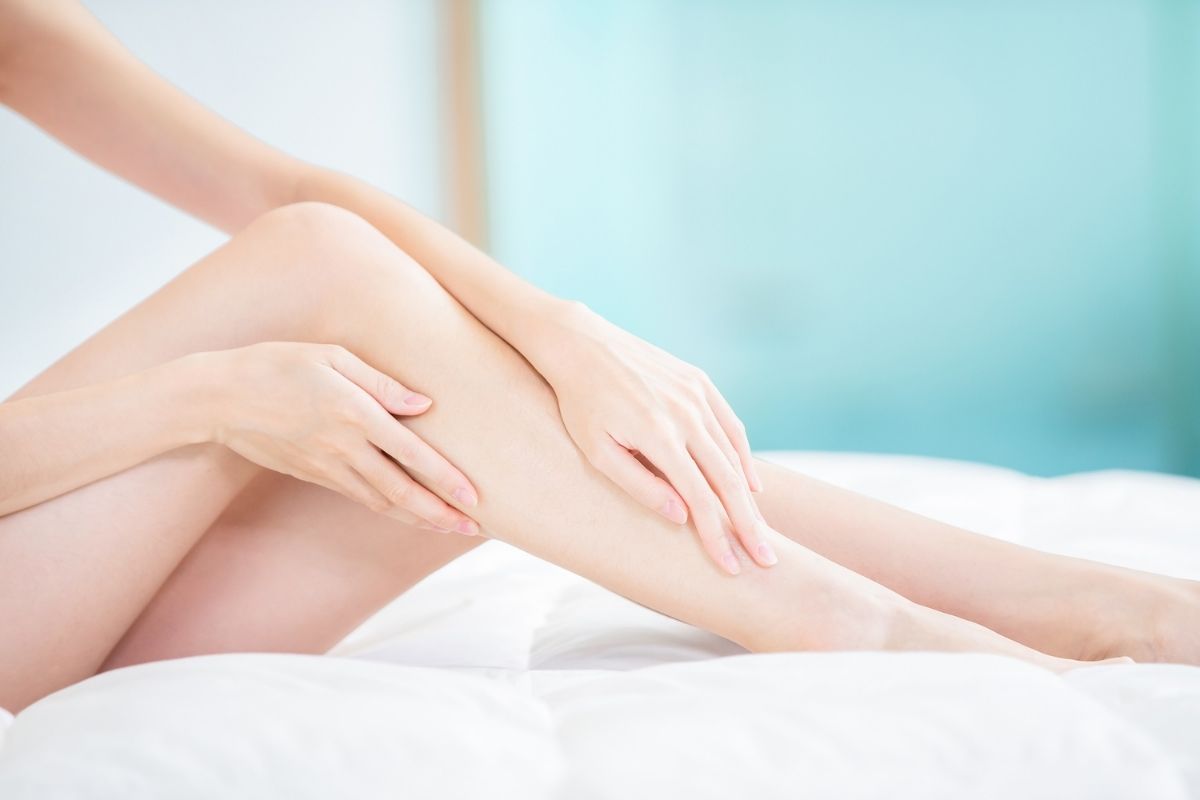
The effects last several years. Patients who have a strong genetic predisposition for varicose veins may need to repeat the treatment more often than the majority without the possibility of finding a permanent cure. They usually suffer from venous insufficiency, which may be a chronic or progressive medical condition. The good news is that if varicose veins reappear, they can be re-treated using laser treatment or a different procedure.
